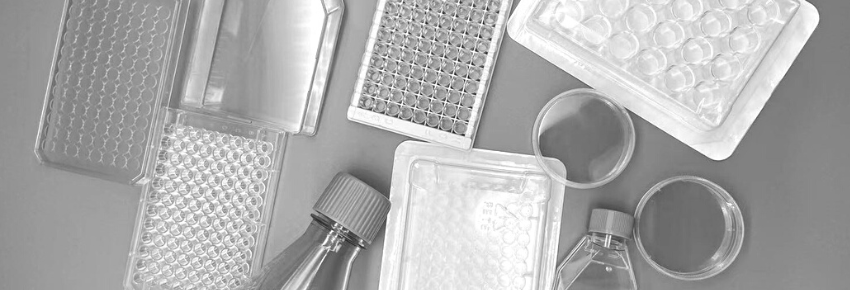Cell culture is a method to simulate in vitro in vivo environment (sterile, suitable temperature, pH and certain nutritional conditions, etc.) to survive, grow, reproduce and maintain major structures and functions. The process is to extract cells from animals or plants and then culture them in an artificial environment for scientific research.
Cell culture allows both to obtain a large number of cells and to use them to study cell signaling, cell anabolism, cell growth and proliferation, etc. At the same time, cell culture technology is also a common research tool in the life sciences, the method can exclude the influence of neurohumoral factors and the interference of liver and kidney detoxification function, to observe the direct effect of certain factors or drugs on cell culture. However, cultured cells lose in vivo cellular constraints and overall regulatory role, cell morphology and function will be changed to a certain extent. Culture methods and experimental reagents have certain effects on cell morphology and function, such as trypsin can destroy cell surface receptors, enzymes, antigens, etc. In addition, cells cultured in vitro for a long period of time may undergo chromosomal aneuploidy alterations and show characteristics of immortalization or carcinogenesis due to repeated passages, freezing and manipulation.

There are two basic types of cell culture, suspension cell culture and apposed cell culture.
Suspension cells are cells that do not depend on the surface of the support and grow in suspension in the culture medium, such as lymphocytes and hematopoietic cell lines. This culture is easier to pass on and the process does not require enzymatic or mechanical dissociation. However, daily cell counts and viability assays are required to observe their growth status. Growth can be stimulated by diluting the culture, and agitation (i.e., shaking or stirring) is required for adequate gas exchange.
The method can be used for bulk protein production, bulk cell collection, and many research applications.

Adherent cells are classified as dermal cell type, fibroblast type, wandering cell type, and polypoidal cell type.
Adherent culture refers to the growth of cells in a monolayer on an artificial substrate. When observed under the microscope, the adherent cells extend at the bottom of the flask and extend into a shuttle or irregular triangle or fan shape or other forms, and the cells do not move when the culture medium is shaken.
When the cells are attached to the substrate, they will gradually stretch and form a certain shape, such as fibroblast-like or epithelial-like.
This culture method is suitable for most cell types, such as cultured cells from isolated animals that must have a support surface to which they can adhere and on which they can grow and proliferate by relying on their own secretion or adhesion factors in the culture medium.
Cell growth in appressed culture is limited by surface area, which may limit production yields, and appressed culture requires cell culture vessels with TC-treated surfaces.

The full name of TC is Tissue culturetreated, and TC treatment indicates that the vessel is surface-modified and suitable for the culture of appressed cells. Cells grown in suspension do not necessarily require such specially treated vessels. However, cell culture dishes with modified surface treatment are generally also suitable for suspension cell culture.
Most animal cells need to adhere to a solid-phase interface in order to grow. Only hydrophilic solid-phase interfaces allow cells to adhere.
The earliest cell culture vessels were made of glass. Since the surface of glass is hydrophilic, ordinary cells can adhere and grow without special treatment. Polystyrene, on the other hand, has good light transmission, good strength and ease of plasticity, and no toxicity, making it the material of choice for disposable cell culture consumables such as disposable cell culture dishes and cell culture plates. However, the surface of polystyrene is hydrophobic, so it needs to undergo surface modification treatment to enhance the ability of cell adsorption and protein binding to become hydrophilic before it can be applied to cell culture.
The culture surface of JYBIO cell culture series consumables are all treated with vacuum plasma, which is a method that uses thin gas under vacuum to form a highly active plasma by collision under the action of electric field, thus inducing degradation by breaking the chemical bonds of plastic surface molecules, increasing the surface roughness and increasing its hydrophilic properties, so that the product has excellent cell wall adhesion.
In addition, JYBIO culture dishes, plates and bottles are made of highly transparent polystyrene, electron beam sterilization, no heat source, no endotoxin, stacking design, easy to stack and not easy to slip off.

cell culture plate cell culture flask petri dish Erlenmeyer flask square media bottle Elisa plates cell scraper
Contact: Mr.Jybio
Phone: +86 15879982901
Tel: 028-87033305
Email: info@jybioscience.com
Add: No.68 Julong Road,Wuhou District Chengdu,Sichuan,CN
We chat
